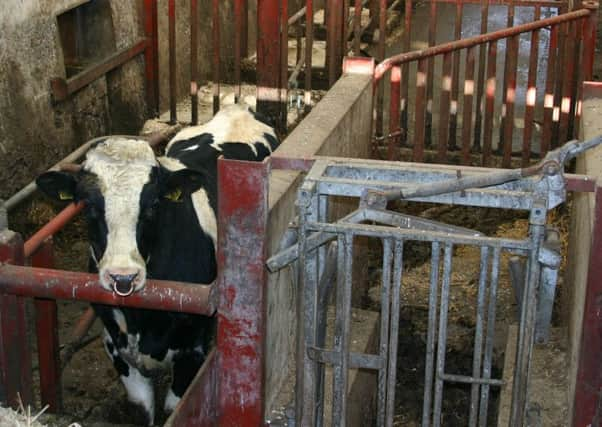Animal handling is a key risk


Handling cattle always involves a risk of injury, and this is increased when an animal becomes frightened or has been startled, or if equipment has been misused or poorly maintained.
Many farmers never stop to consider animal’s behaviour and more importantly, how this behaviour can impact on their personal safety. Animal-handling practices are often inherited from watching others and from personal experiences growing up on the farm. Overfamiliarity and complacency can often result in unsafe livestock handling and restraint practices. Although most animal incidents are not fatal, many men, women and children are needlessly injured every year due to a lack of safety awareness.
Advertisement
Hide AdAdvertisement
Hide AdBroken bones, crushed and mashed limbs, work absences and unnecessary medical expenses are just some of the results of livestock-related incidents, with Wednesday’s theme of Farm Safety Week challenging farmers to improve livestock handling systems and ensure health and safety is paramount at all times.
Joining the rest of the Farm Safety Week team at the RABDF panel discussion on the opening day of the Livestock Event at Birmingham’s NEC, Keith Morrison, Chief Executive of the Health and Safety Executive Northern Ireland (HSENI) and Farm Safety Partnership member said: “Over the course of this week, we have five days, five themes and five countries with one very clear question – have you thought about “Who Would Fill Your Boots?” if you were to have a farm accident.
“This Farm Safety Week we are adding our voice to that of our counterparts in England, Scotland, Wales and the Republic of Ireland to work safer and smarter around livestock. People tend to give animals human qualities and forget that animals quickly revert to primal reflex actions when they are threatened or under stress. Animals will fiercely defend their food, shelter, territory and young. When frightened or in pain, animals may react in ways that threaten your safety as well as their own.
“Facilities too, can play a major role in preventing incidents. Good facilities provide a means of controlling animals while allowing easy access for routine chores - all in a safe environment. There needs to be an element of common sense and safety involved in decision making and it is important to stress that safe handling equipment is a must, not a luxury – at the end of the day it could save your life,” he concluded.